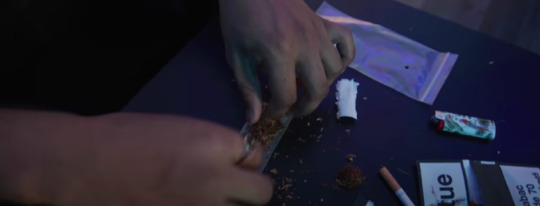Text
“In May 2019, Claire Fox was elected as an MEP for Nigel Farage’s Brexit Party.[1,2] Fox was a writer for the website Spiked Online and was the founder of the Institute of Ideas (now the Academy of Ideas). She had also been a long-time member of the Revolutionary Communist Party (RCP) until its dissolution in 1996 and co-publisher of LM (previously Living Marxism and the journal of the RCP). In the same European Parliament elections, James Heartfield, another former RCP member and contributor to both LM and Spiked, challenged the seat of Yorkshire and the Humber for the Brexit Party, but was not elected.[3] In the British general election in December 2019, another seven Brexit Party candidates had previously been given a platform by Spiked (including former RCP member James Woudhuysen).[4] In addition to this, one of Boris Johnson’s advisors and co-author of the 2019 Conservative Party manifesto, Munira Mirza, had previously contributed to Spiked and worked for Fox’s Institute of Ideas.[5] The website itself saw Brexit as a demonstration of democracy against the ruling elites and had championed both the Brexit Party and Boris Johnson for their pursuit of Britain leaving the European Union. In August 2020, Fox was elevated to the House of Lords as a non-affiliated peer, viewed by some as another extension of the Johnson government’s ‘war on woke’.[6] Journalists, academics and political activists have increasingly referred to this as the RCP/LM/Spiked network (or similar variants, such as the LM network) and explored how the RCP grew into a series of interconnected organisations, publications and individuals in the 1990s and 2000s.[7] Part of the intrigue of this network is the trajectory of the leadership of the Revolutionary Communist Party almost en masse from ultra-left Trotskyism in the 1980s to right libertarianism in the 2010s. Originally, a splinter group called the Revolutionary Communist Tendency (until 1981), the RCT/RCP was regarded by many other groups on the left as sectarian and controversialist. After the party dissolved itself in 1996, several of the party’s leading members, including the leader Frank Furedi, have managed to develop a media profile, becoming regular pundits on television, on the radio, in the mainstream press and online. In recent times, it has been revealed that the US-based Charles Koch Foundation had given Spiked!’s US arm $300,000 ‘to produce public debates in the US about free speech’.[8] While this trajectory has been explored somewhat by journalists and bloggers, the history of the RCP has yet to be explored in depth by historians of British politics and the left.”
Evan Smith - A Platform for Working Class Unity? The Revolutionary Communist Party’s The Red Front and the pre-history of Living Marxism/Spiked Online in the 1980s (2022) [Contemporary British History]
0 notes
Text

Source: Chris Richards — West Indian Supplementary Service. London 1974–1975
0 notes
Text
Brown Sugar - Black Pride
3 notes
·
View notes
Text

Source: Chris Richards — West Indian Supplementary Service. London 1974–1975
5 notes
·
View notes
Text
“Mimetic exacerbation, mirroring, acceleration, ‘over-identification’. There are plenty of terms in our current art theoretical lexicon for the device of neoliberal or right-wing aesthetics, language and behaviours to undermine said ideologies, but strangely nobody employs the one word accurately describing that methodology and its formal results: bollocks. The idea that white artists mimicking fascists, Nazis, white supremacists, bigots and nationalists disrupts or demystifies rather than propagates (however subtly) the right positive message of an ‘irresistible rise’, or results in said targets, groups or individuals altering their behaviour, is just idiotic. In reality, what’s repeated with brain-numbing frequency is the production of weak ‘works’ that rely on the re-presentation of aesthetics of oppression (however indirect or cryptic) for impact and affect. Yes, that strategy is used by naive, socially isolated members of demographically homogeneous groups; stupid provocateurs convinced of their own special intelligence or the value of transgression for transgression’s sake. It’s also used by people who are (however indirectly) supporting racism and engaged (consciously or unconsciously) in furthering the interests of specific far-right or racist groups – by ‘interests’ I mean the violent (physical and psychological) abuse and domination of targeted peoples, or propagation of the narrative that such a future is inevitable. What everybody should know by now is that these approaches are not mutually exclusive. In fact, they frequently come together in the single individual tittering behind a non-committal hedge of ambiguity and irony (the transgressive approach) in order to hide the reality of their participation in the second and more sinister strategy (dalliance with and support for racist and far-right groups). What beggars belief is that people still pop up to defend such behaviour in support of – and here we should all be rolling our eyes – broadening ‘the conversation’ or in the name of ‘free, reasonable and challenging debate’.”
Morgan Quaintance - Cryptic Obliquity (2019) [Art Monthly]
1 note
·
View note
Photo







JMax - Ganja
1 note
·
View note
Text
“In theory, artists shocking the bourgeoisie is an old story. “This sort of thing has been seen before,” says John Ganz, author of a forthcoming book on political volatility in the early 1990s. “A certain cultural elite thinking the transgression and vulgarity of fascism or right-wing populism is amusing and upsets all the right people. When Celine published his crazy antisemitic rant in the ’30s, lots of French intellectuals thought he must be being ironic: ‘This is such a wonderful provocation of middle-class sensibilities and hypocrisy.’” But, Ganz continues, “The problem is they also have to keep coming up with stuff to be provocative.” In a 2017 article, political scientist Joseph E. Lowndes tells a cautionary tale about Telos, a once-Marxist journal founded in the 1960s that, by the 1990s, had become home to far-right thinkers who provided the intellectual backbone for the alt-right. Frustrated by their sense that all forms of dissent were co-opted and neutralized by capitalism, Telos’ editors had searched farther and farther afield for movements that truly challenged social norms. Much of what they found was on the nationalist, racist Right.”
Kathryn Joyce and Jeff Sharlet - Losing the Plot: The “Leftists” Who Turn Right (2023)
2 notes
·
View notes
Text

Jan Carew
Source: Joseph Okpaku - Why should a Negro intellectual move next door to you? (1 January, 1973) [Esquire Magazine]
3 notes
·
View notes
Text

Sylvia Wynter by Mary Ellen Mark
Source: Joseph Okpaku - Why should a Negro intellectual move next door to you? (1 January, 1973) [Esquire Magazine]
4 notes
·
View notes
Text

Robert A. Hill
Source: Joseph Okpaku - Why should a Negro intellectual move next door to you? (1 January, 1973) [Esquire Magazine]
2 notes
·
View notes
Text
Catholics who become leftists don’t tend to do so simply by way of reaction to a right-wing, deeply authoritarian set up. Nor is it that they are predisposed by their upbringing to left-wing sects which like the church believe themselves to be the sole proprietors of truth, and which have their own secular version of schisms, heresies and even popes. It is rather that you can move from Catholicism to Marxism without having to pass through liberalism. To be raised a Catholic is to have no feel for liberal individualism. Catholics are not impressed by the sovereign autonomous subject. In fact, like Geuss, they are far too little impressed by it. They think instead in corporate terms, and are instinctively ill at ease with Protestant inwardness and solitude. The more positive side of ritual observances is that what matters is what you do, not some inner angst or ecstasy. Catholics also hold that human existence is an institutional affair, and is thus inherently social. Nor are they rattled by the idea of doctrine, or even of dogma, which they understand in its original sense as meaning whatever is taught. Reason has its limits; but it is not an inherently corrupt facility, as radical Protestantism claims, and within its constraints one must argue and analyse as precisely as possible. Endless open-mindedness is to be admonished rather than admired. The truth will set you free. The late left-wing theologian Herbert McCabe once told an Anglican bishop that the difference between the two of them on a certain issue was not a matter of emphasis, but that he, McCabe, was right and the bishop was wrong. Or, he added, if he is right, then I am wrong. It is an authentically Catholic note.
TERRY EAGLETON - Anti-Liberal (New Left Review, 12 AUGUST 2022)
2 notes
·
View notes
Text

Marcia Griffiths (1971) by Graham Wood.
10 notes
·
View notes
Audio
John Holt - Darling, I Need Your Loving
In memory of one of Jamaica’s greatest singers.
8 notes
·
View notes
Text

Debra Keese
16 notes
·
View notes
Text

Mahmoud Darwish, Journal of an Ordinary Grief (يـومـيـات الـحـزن الـعـادي), 1973
32K notes
·
View notes

